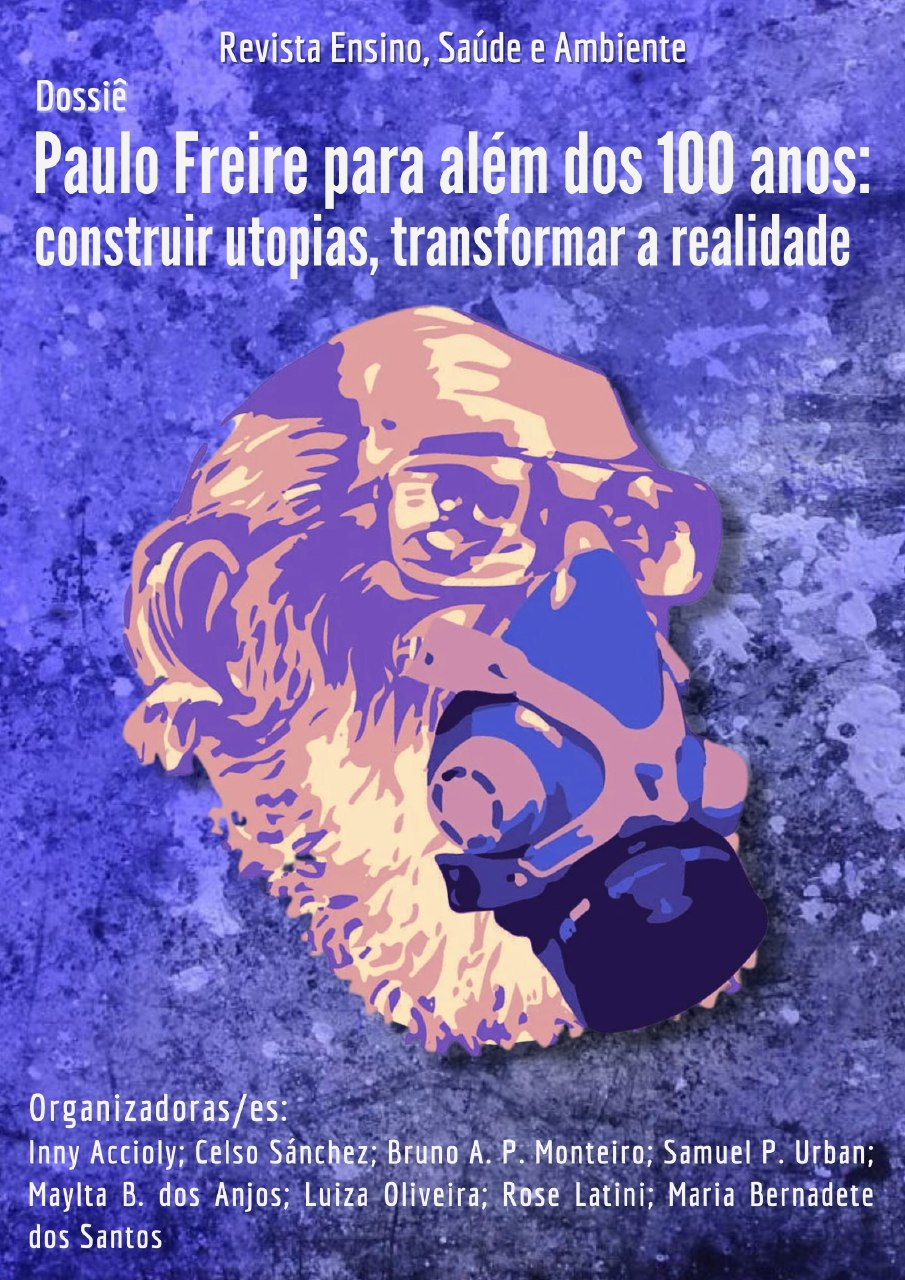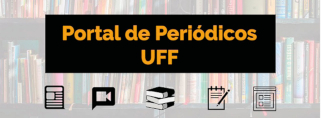Por que Paulo Freire ainda hoje?
O que dizem mestrandas e mestrandos na Disciplina: “Educação e Transformação em Paulo Freire”?
DOI:
https://doi.org/10.22409/resa2021.v14iesp..a52317Palavras-chave:
Paulo Freire, educação e transformação, formação de professores, memesResumo
Este artigo indaga a pertinência da contribuição de Paulo Freire, um pensador educador do século XX, aos desafios da educação no século XXI. No ano do centenário de seu nascimento, docentes do PPGEB-CAp-UERJ ministram a disciplina “Educação e Transformação em Paulo Freire”, apostando na potência das reflexões e proposições do autor para enfrentar variados problemas da atualidade. A disciplina traz mestrandas do próprio programa e alunas especiais. Os dois grupos, que se tornam um na disciplina, são formados por professoras de diversas escolas e redes de ensino, especialmente na educação básica. Como uma das atividades iniciais do curso, são interrogadas sobre a presença do autor em seus processos de formação, assim como, sobre o que buscam na disciplina. Essas respostas são potentes para responder à pergunta original do artigo. Mas ele conta também com o inusitado: no dia do aniversário de 100 anos do nascimento de Freire, circularam vários memes comemorativos pelas redes sociais, inclusive num grupo de Whatsapp da turma da disciplina. Chama a atenção das professoras a riqueza semiótica de vários deles e, em especial de um, que é trazido neste artigo, com as interpretações escritas pelas estudantes. As respostas mostram não apenas a atualidade do pensamento, mas também a capacidade de sua obra em dialogar com desafios enfrentados por outros autores e abordagens que emergiram mais fortemente no início do século XXI, como a pedagogia decolonial.
Downloads
Referências
BAKHTIN, M. Marxismo e Filosofia da Linguagem. São Paulo: HUCITEC, 1992.
bell hooks, Ensinando a transgredir: a educação como prática de liberdade. 2.ed. São Paulo: Editora WMF Martins Fontes, 2017.
BERINO, Aristóteles; CARDOSO, Marcélia Amorim. Da fotografia ao meme, Paulo Freire através das suas imagens na internet. Revista Periferia, Caxias, v. 9, n. 2, p. 234-256, jul-dez, 2017.
FREIRE, Paulo. Conscientização: teoria e prática da libertação - uma introdução ao pensamento de Paulo Freire. São Paulo: Moraes, 1980
FREIRE, Paulo. Pedagogia do oprimido. Rio de Janeiro: Paz e Terra, 1987.
FREIRE, Paulo. Pedagogia da Autonomia. São Paulo: Paz e Terra, [1996]1998.
FREIRE, Paulo. Pedagogia da tolerância. Rio de Janeiro/São Paulo: Editora Paz e Terra, 2020.
GADOTTI, Moacir (org.) Paulo Freire Uma biobibliografia. São Paulo: Cortez, 1996.http://acervo.paulofreire.org:8080/jspui/bitstream/7891/3078/1/FPF_PTPF_12_069.pdf Acessado em setembro de 2021.
GUERREIRO, A e SOARES, Neiva Os memes vão além do humor: uma leitura multimodal para a construção de sentidos. https://periodicos.ufsc.br/index.php/textodigital/article/view/1807-9288.2016v12n2p185/33189. Acessado em setembro de 2021
MIAN, Mariella B e CASTILHO, Alessandra de. O Ciberativismo potencializado via memes: Uma análise de articulação de pautas políticas e sociais nas redes. Aurora: revista de arte, mídia e política, São Paulo, v.12, n.34, p. 110-128, fev.-mai. 2019. https://revistas.pucsp.br/index.php/aurora/article/view/38269/29605. Acessado em setembro de 2021
NETO, J.C.M. 2018. Paulo Freire e Orlando Fals Borda na genealogia da pedagogia decolonial latino-americana. FOLIOS: Segunda Época, (48):3-13. https://doi.org/10.17227/folios.48-8131.
MORAES, Marcia. Paulo Freire e a formação da educadora. in: GADOTTI, Moacir (org.) Paulo Freire Uma biobibliografia. São Paulo: Cortez, 1996. http://acervo.paulofreire.org:8080/jspui/bitstream/7891/3078/1/FPF_PTPF_12_069.pdf p. 584-587
ROSSATO, Ricardo. Práxis. in: STRECK, Danilo R.; REDIN, Euclides; ZITOSKI, Jaime José (orgs.). Dicionário Paulo Freire. Belo Horizonte: Autêntica, 2008, p. 331-333.
SANTOS, Boaventura de Sousa. Reconhecer para libertar: os caminhos do cosmopolitanismo multicultural. Introdução: para ampliar o cânone do reconhecimento, da diferença e da igualdade. Rio de Janeiro: Civilização Brasileira, 2003, p. 56.
TORRES, Carlos Alberto. A voz do biógrafo latino-americano - uma biografia intelectual in: GADOTTI, Moacir (org.) Paulo Freire Uma biobibliografia. São Paulo: cortez, 1996.http://acervo.paulofreire.org:8080/jspui/bitstream/7891/3078/1/FPF_PTPF_12_069.pdf p. 117-147
SCORSOLINI-COMIN, Fabio. Diálogo e dialogismo em Mikhail Bakhtin e Paulo Freire: contribuições para a educação a distância. Educação em Revista. Belo Horizonte. v.30, n.03, p.245-265. Julho-Setembro, 2014.
Downloads
Publicado
Edição
Seção
Licença
Copyright (c) 2021 Jonê Carla Baião, Claudia Barreiros, Andrea Fernandes

Este trabalho está licenciado sob uma licença Creative Commons Attribution 4.0 International License.
Os autores que publicam nesta Revista concordam com os seguintes termos:
1. Autores mantém os direitos autorais e concedem à revista o direito da primeira publicação.
2. Autores têm autorização para assumir contratos adicionais separadamente, para distribuição não-exclusiva da versão do trabalho publicado nesta revista (ex.: publicar em repositório institucional ou como capítulo de livro), com reconhecimento de autoria e da publicação inicial nesta revista.







